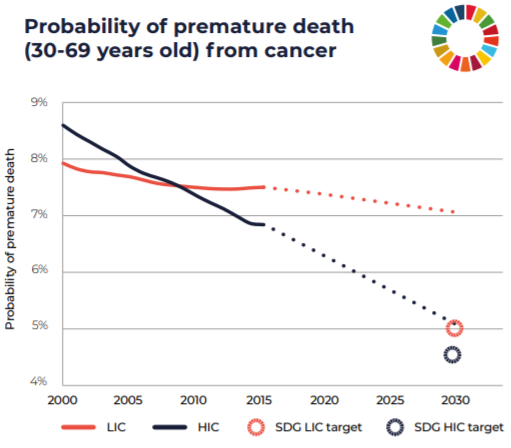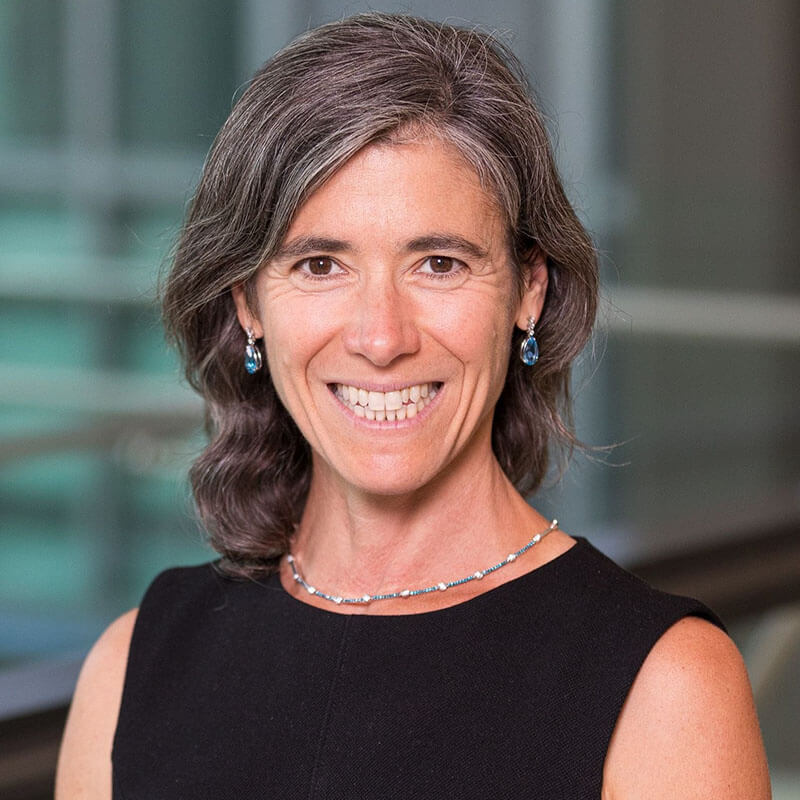The COVID-19 pandemic has made palpable the importance of focusing on implementation (and especially equitable implementation) and of taking a global perspective to population health. So, I was delighted to work with NCI’s Center for Global Health (CGH) over the last year, helping them to develop initiatives in global implementation science.
Given NCI’s commitment to advancing cancer control and health equity, it’s critical to build capacity for implementation science in low- and middle-income countries (LMICs). Although the overall rate of premature deaths from cancer has been declining globally, that decline is significantly faster in high-income countries (HICs) compared with LMICs, which means that the already significant disparity in cancer mortality between high- and low-income countries will only get worse over time (see 2020 WHO Report on Cancer).

There are a variety of reasons for that disparity, which were nicely summarized in a commentary by CGH Director Dr. Satish Gopal and NCI Director Dr. Ned Sharpless, including a lack of access to cutting-edge high-cost therapeutics and devices as well as limited access to older and less costly cancer therapies. Importantly, they highlighted the inconsistent and incomplete implementation of essential cancer control interventions. As implementation scientists, we realize these implementation challenges are not unique to LMICs, but they often are more substantial. Thus, focusing our attention on global implementation science can help to reduce this growing disparity.
There are several ways in which CGH is advancing global implementation science, which they identified as a key priority area in their new strategic plan. In coordination with the Global Alliance for Chronic Diseases, and building off of the existing Dissemination and Implementation Research in Health funding opportunities, CGH issued a Notice of Special Interest (NOT-CA-20-025) for implementation science in low-resource environments. Through this initiative, CGH has funded four applications over the past year in countries across the globe. Additionally, in 2021 in collaboration with the NCI Office of HIV and AIDS Malignancy, CGH issued a funding opportunity for implementation science in cancer control among people living with HIV in LMICs. In 2022, CGH is intending to launch a new initiative, GlobalISE Cancer Control, aiming to create implementation science hubs for cancer control in LMICs. As we develop this Request for Applications (RFA) concept, we are focusing on a range of critical implementation challenges in LMICs, including how to adapt cancer control interventions, how to efficiently bundle cancer control services, how to integrate cancer control into primary care, how to de-centralize cancer control services to community settings, and how to enhance retention across the continuum of cancer care. To support this research, hubs would include a research capacity-building core to support implementation science training and structured mentoring.
Please stay tuned for more to come as we work across the globe to reduce the inequitable burden of cancer.
Gila Neta, PhD, MPP is an epidemiologist and program director for Implementation Science in the Office of the Director in the Division of Cancer Control and Population Sciences (DCCPS) at the National Cancer Institute.

Dispatches from the Implementation Science Team, is an episodic collection of short form updates, authored by members and friends of the IS team representing a sample of the work being done and topics that our staff are considering for future projects. Topics address some of the advances in implementation science, ongoing issues that affect the conduct of research studies, reflections on fellowships and meetings, as well as new directions for activity from our research and practice communities.


